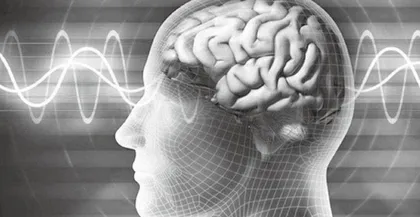Why We Have Stopped-Clock Illusion“停表错觉”产生的原因

Experiments have shown that the audio and video can be out of sync by up to about a tenth of a second and our brains will still match everything together. Our brains do that all the time, plus all the sensory information like touch, smell, taste, motor control, balance, hormones, and everything else, which all send and receive information at different rates.
有实验表明,即使声音和图像差约十分之一秒同步,人脑仍然能够将它们匹配在一起。我们的大脑一直在处理视觉和听觉信息,此外还有触觉、嗅觉、味觉、运动神经控制、平衡、激素等所有感官信息,所有这些都以不同的速率发送和接收信息。
It’s no wonder then that sometimes our sense of the flow of time can go out of kilter. When you first glance at a clock, the second hand seems to stay still for longer than normal because we tend to pay more attention to new events or information. It is called the “stopped-clock illusion”.
这就是为什么有时我们对时间流逝的感知会发生偏差。当你第一次看钟表时,秒针暂停的时间似乎比往常长,这是因为我们更倾向于关注新鲜的事件或消息,这一现象被称为“停表错觉(或时停错觉)”。
Many have reported—and you may have personally experienced—the sensation of time slowing down or even stopping during moments of awe or fear. It seems as if you can have a series of long, complicated thoughts all in the blink of an eye. We’re not sure if this is a real effect, perhaps triggered by an increase in neural activity that allows our conscious minds to receive and process more information than usual, or if it’s just an exaggeration of our memories due to the strong emotional content of the moment. This shows just how difficult it is to study our perceptions of time; since they’re all personal to us, and nobody can sense another person’s flow of time from the outside.
许多人都表示,你可能也亲身经历过,在感到敬畏或恐惧的时候,时间似乎会变慢甚至停止,仿佛在眨眼之间,你就可以产生一连串长且复杂的想法。这一效应是否真实存在尚不确定,也许是由于神经活动的增多,使我们的头脑能够比平时接收和处理更多信息,或者只是因为当时强烈的情感内容冲击,让我们的记忆放大了当时的情绪。这正好表明了研究时间感知有多么困难,因为那些都是我们个人的感受,没有人可以从外部感知到另一个人的时间流动。
Tied to all of this is our relationship with our memory, which forms a core part of our self-identity and our larger sense of the passage of time across our lives. Various regions of the brain, like the prefrontal cortex, use our working memory to tell us how long it’s been since an event. Other areas of the brain, like the parietal cortex, help us make predictions of timing based on past experiences.
这一切都与我们和记忆的关系息息相关,它构成了我们自我认知的核心,以及我们对生活中时间流逝的整体感知。大脑的不同区域,比如前额叶皮层,会利用我们的工作记忆,告诉我们一件事情所需的时间。大脑的其他区域,如顶叶皮层,让我们可以根据过去的经历预估时间。
We have no universal answer as to how our brains process the flow of time. Whatever it is, it appears to be a deep biological function, since even invertebrates have some basic perceptions of time. So don’t be surprised the next time you and a friend disagree about how long the dinner was, or if you feel like sometimes the meeting will simply never end. In the words of the time-traveling Dr Who, time is more like “a big ball of wibbly-wobbly, timey-wimey stuff”.
对于大脑如何处理时间的流逝,其实并没有标准答案。无论结论是什么,这似乎是一种深层次的生物功能,因为即使是无脊椎动物也具有一些基本的时间感知功能。所以,当下次你和朋友对晚餐吃了多久有分歧,或者你有时觉得会议就是永远也不会结束时,不要感到惊讶。用时间旅行者神秘博士的话来说就是:时间“更像是一个摇摆不定、时而这样时而那样的大球”。
Word Bank
glance /ɡlɑːns/ v. 瞥一眼;匆匆一看
trigger /'trɪɡə(r)/ v. 引起;触发
conscious /'kɒnʃəs/ adj. 有意识的;有知觉的
perception /pə'sepʃn/ n. 知觉;感知
invertebrate /ɪn'vɜːtɪbrət/ n. 无脊椎动物